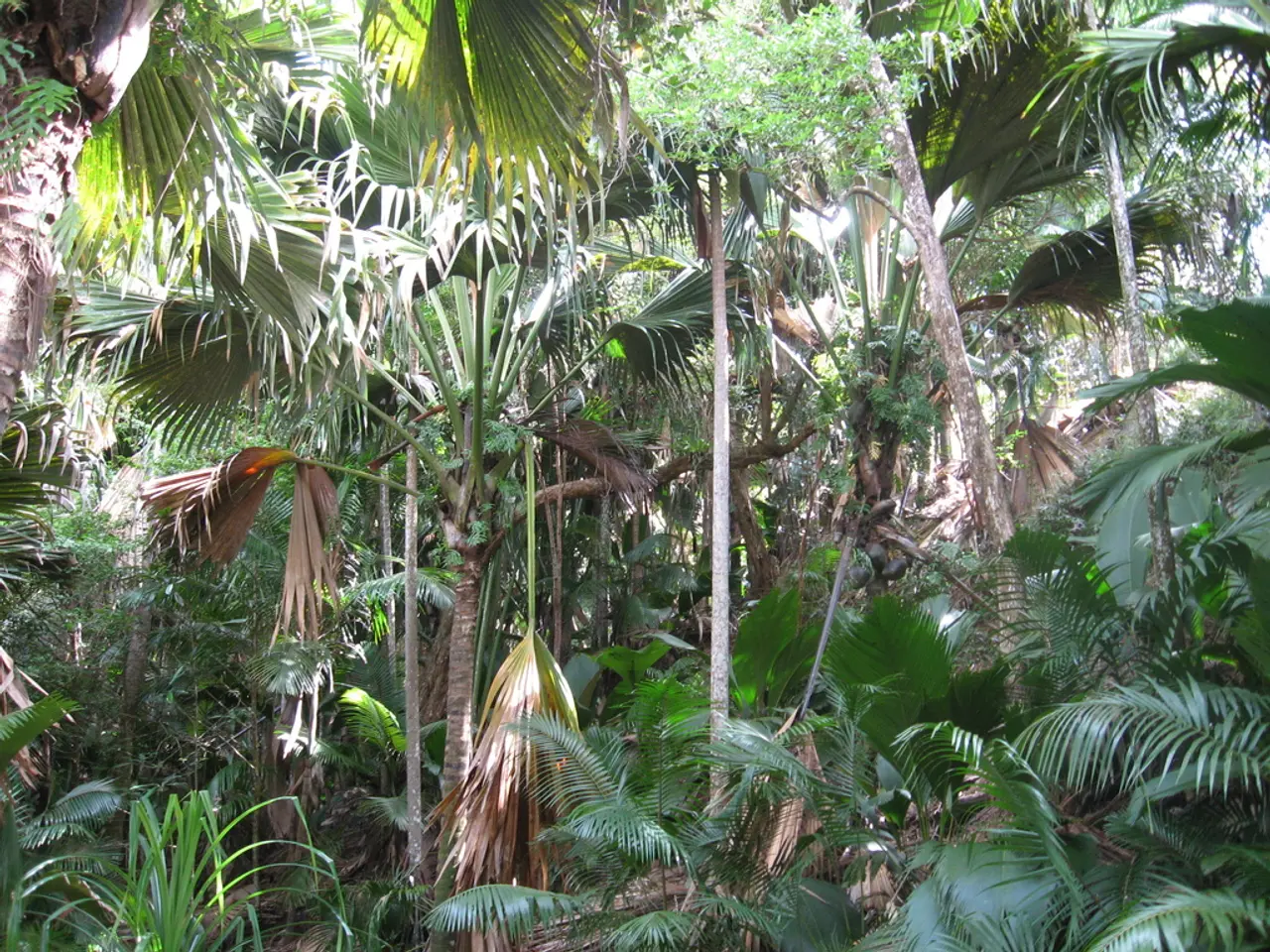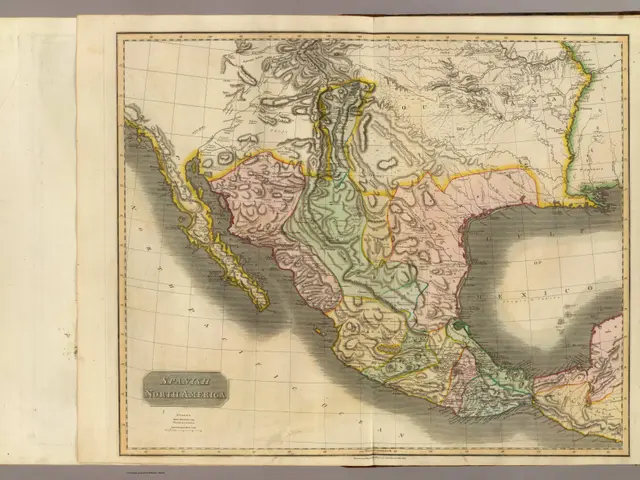Unforeseen damages from EU's deforestation regulation raise concerns among experts
The European Union's (EU) upcoming anti-deforestation law (EUDR), set to take effect on Dec. 30, 2025, aims to reduce emissions from deforestation in various supply chains. However, a recent paper by Brinda Yarlagadda from Pacific Northwest National Laboratory suggests that the EUDR alone may not drive significant emission reductions from deforestation in supply chains such as palm oil and soy.
The EUDR requires producers of soy, cattle, cocoa, coffee, palm oil, rubber, and timber to prove that their products are not sourced from land deforested after December 2020. However, the legislation is criticised for being 'smallholder blind', with many smallholders lacking the necessary resources to comply with the GPS information and proof of land tenure requirements.
One concern is that some targeted commodities may bypass the European market altogether, as producers opt to sell to nations with looser regulations. This could potentially lead to deforestation being shifted to other ecosystems.
On the other hand, agroforestry systems, such as Ethiopian coffee grown under a forest canopy and Indonesian rubber, could be cut off from EU markets due to the EUDR's strict definition of a forest. This could have a significant impact on these agricultural systems, as agroforestry is an important part of the production systems being regulated.
Another issue is the risk of excluding smallholders from the EU market, which could deepen rural poverty and inequality. This is a concern for various EU agricultural and environmental bodies, including the European Commission and agricultural ministers, who are engaged in shaping the policies affecting small producers under EUDR frameworks.
The Amazon soy moratorium, which aimed to reduce deforestation in the Amazon, provides a cautionary tale. While it reduced deforestation in the Amazon, it increased deforestation in the neighboring Cerrado savanna. This highlights the need for careful consideration of the potential unintended consequences of such legislation.
Furthermore, EU forest maps show 12% more forest cover than national data, largely because agroforestry plots are counted as forest. This raises questions about the EUDR's strict definition of a forest and its potential to misclassify agroforestry systems as noncompliant.
In conclusion, the EUDR aims to reduce emissions from deforestation, but it faces challenges and controversies. If other countries were to adopt similar restrictions, there could be a larger impact on reducing emissions from deforestation. However, it is crucial to consider the potential unintended consequences, such as the impact on smallholders and the risk of deforestation shifting to other ecosystems.
Read also:
- Amidst India's escalating climate crisis, transgender individuals continue to persevere
- Contentious Discussion Surrounding the Movie Release of "Planet of the Humans"
- Germany's three-month tenure under Merz's administration feels significantly extended
- Norway set to allocate proceeds from sales of tickets for a soccer match against Israel to Médecins Sans Frontières (MSF)








